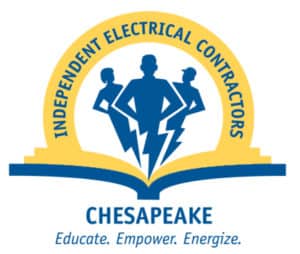2021 Maryland General Assembly Legislative Wrap-Up
OVERVIEW
The Maryland General Assembly concluded its 90-day 2021 Legislative Session on April 12th. The Session was conducted entirely virtually. There was opportunity to submit written testimony and also to testify on video. Highlights of the 2021 Session included police reform and accountability, COVID-19 employee safety issues and COVID-19 relief for employers and Maryland residents.
The 2022 Maryland Fiscal Year budget totals $52.4 billion. Federal funds, including additional COVID-19 relief money account for 39.8% of the total Maryland budget. The Fiscal Year2022 budget includes $75 million for employee training and apprenticeship programs. Fiscal Year 2022 begins July 1, 2021.
The most notable accomplishment benefitting Independent Electrical Contractors (IEC) Chesapeake was the passage of Senate Bill 762 – Maryland Electrician Act-Revisions. After nearly a decade of consideration, the General Assembly finally passed this legislation. Senate Bill 762 establishes statewide electrician licenses for journeypersons and apprentices to go along with the existing statewide Master electrician license. Other provisions of the bill include creating a standard statewide electrical code, continuing education requirements, and enforcement authority for the renamed State Board of Electricians. Also, the bill requires a licensed journeyperson electrician or master electrician to be present at each job site where electrical services are provided.
LEGISLATION OF INTEREST THAT PASSED THE GENERAL ASSEMBLY
IEC Chesapeake tracked many bills during the 2021 Maryland General Assembly Session. IEC Chesapeake worked closely with other business groups and electrical industry groups to oppose and support various pieces of legislation. Major bills included:
Senate Bill 35/House Bill 37-Procurement-Prevailing Wage-Applicability: This legislation requires that a public work contract valued at $250,000 or more that receives 25% or more in State funding pay the State prevailing wage to employees working on the project. The previous threshold was $500,000 and 50% in State funding.
House Bill 581-Labor and Employment-Employment Standards During an Emergency (Maryland Essential Workers ’Protection Act): This legislation passed as emergency legislation and went into effect upon passage. The legislation establishes various safety protections and benefits for “essential workers” and various requirements for “essential employers” when the Governor proclaims a catastrophic health emergency due to a communicable disease. Under the legislation, employers must provide free testing if an employee cannot get a free test. If the Federal or State government provides funding for public health emergency leave, then “essential employers” must provide up to 112 hours of paid leave for full-time employees and a lesser amount for part-time employees deemed essential. The legislation also allows employees to refuse to perform certain tasks because of safety concerns. “Essential employees” may file complaints with the Commissioner of Labor and Industry who is responsible for enforcing the bill’s provisions.
Senate Bill 496 – Recovery for the Economy, Livelihoods, Industries, Entrepreneurs, and Families (RELIEF) Act: On February 15th, Governor Hogan signed into law SB 496 which provided direct stimulus payments to low and moderate income Marylanders and additional support for unemployed Marylanders. For small businesses, there were immediate sales tax credits, unemployment tax relief and additional loan and grant forgiveness. This bill was passed in response to COVID-19 as emergency legislation going into effect on the day it was signed.
LEGISLATION OF INTEREST THAT FAILED IN THE GENERAL ASSEMBLY
House Bill 64–Labor and Employment – Occupational Safety and Health: Hand Washing Facilities on Construction Sites: House Bill 64 would have required hand washing facilities on construction sites.
House Bill 420-Employers of Ex-Offenders: Liability for Negligent Hiring or Inadequate Supervision – Immunity: The bill-would have provided incentives to hire employees who had been convicted of certain crimes.
House Bill 726-Labor and Employment-Apprenticeship and Training Council-Representation: HB 726 would have required the Maryland and Apprenticeship and Training Council to have individuals serving on the Council who are Black and Latino.
House Bill 1321 Labor and Employment Right to Work:
House Bill 923/Senate Bill 728-Labor and Employment-Worker Safety and Health-Injury and Illness Prevention Program: This legislation would have applied to businesses with a minimum of ten employees and who have a rate of injury and illness higher than the average of all industries in Maryland. The affected businesses would have to establish a Health and Safety Committee with an equal number of managerial and non-managerial employees. The Committee would have had a minimum of quarterly meetings. There were training, inspection, and record keeping requirements in the legislation.
Senate Bill 940-Public Safety-Fire Prevention Codes and Maryland Building Performance Standards-Solar Energy Generating Systems: SB940 was introduced at the request of the Maryland Solar Industry and it would have applied to the installation of solar panels on the roofs of single-family homes. The legislation sought to ensure that there is enough room for solar panels to be installed in light of the requirement of a fire protection pathway.
CONTACT INFORMATION
Kevin O’Keeffe
[email protected] 410-382-7844

